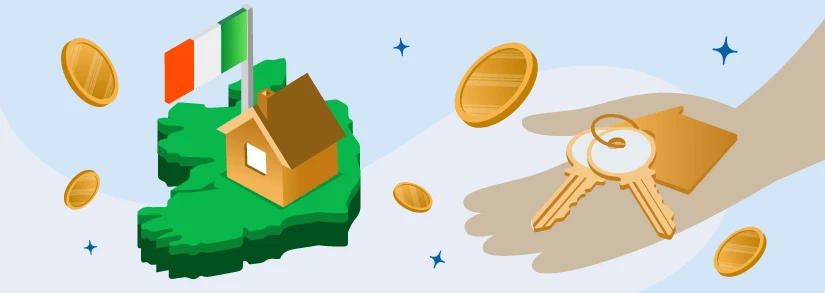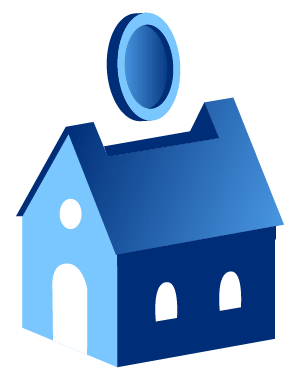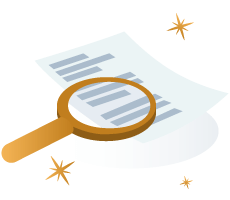Help To Buy Scheme: Your Guide to Affordable Housing

Looking to buy a home but not sure you can afford one? You’re not alone. House prices are on the rise again in Ireland, meaning prospective first-buyers are struggling with being able to afford a home.
Help is available - we bring you all the details on:
Read on to find out all the details on what financial aid and tax rebates are available to help you get the keys in hand to your first house.

Moving House? Set up All Your Utilities At Once!
Set up your energy, broadband and waste in one hassle-free call!

Need To Sort Out Your Utilities for Your Move?
We're currently closed but please leave us your number and we'll give you a free call as soon as we're open!
What Is the Help To Buy Scheme?
The Help to Buy Scheme is aimed at first time buyers who have difficulties coming up with the 10% deposit for purchasing a house.
It was launched in February 2017 and has been extended to end on 31 December 2022. Homeowners who signed contracts to purchase homes after December 19th 2016 can also apply for it.
Here are the main factors you need to keep in mind regarding the Help to Buy Scheme in Ireland:

- You can receive 10% of the purchase price or of the completion value of a new build.
- The maximum amount you can claim is now set at €30,000 and it can only be applied to new homes purchased from qualifying contractors.
- The programme is aimed at first-time buyers only. If you are buying the property with anyone else, it must also be their first time buying a home. Otherwise, you will not qualify for this scheme.
- The scheme is applicable to newly-built houses or apartments. New self-build homes also qualify but cannot be applied to second hand homes.
- With this scheme, you will be able to claim both, a refund on income tax and a refund on any Deposit Interest Retention Tax (DIRT) you have paid in the previous four years.
- It does not cover investment properties and it is expected to be your main residence for at least five years from the date it is habitable.
- You must take a mortgage of a minimum of 70% of the purchase price. You can have a guarantor on the loan, regardless if it is that person’s first home or not.
- The Help to Buy Scheme is only available for properties which cost less than €500,000.
- It can also be used in conjunction with the Local Authority Home Loan (see details below).
Some banks offer cashback on mortgages, be sure to shop around when choosing a financial institution for your property mortgage.
What is a guarantor? If banks have doubts about your ability to cover the mortgage, they December ask for a guarantor. This is someone who agrees to pay for your loan if you cannot pay it. This is often a parent or close relative.
Check Out Our Guarantor Guide!
How Does the Help To Buy Scheme Work?
Here are four important factors to note to ensure the Help to Buy Scheme works for you:
- Apply for the scheme before taking out a mortgage or purchasing a home.
- When calculating your mortgage and budget, keep in mind that to qualify for this scheme, your mortgage must be for at least 70% of the purchase price of the home.
- Be sure to select a newly-built home through a qualified contractor. You can find a listing of qualified builders through the Revenue Ministry.
- Lastly, you also need to be tax compliant yourself to qualify for the programme.
What Happens If I Sell a House I Bought Through the Help To Buy Scheme?
Anyone who purchases a first-time buyer’s house through the scheme must live in the house for at least five years or be liable to refund some of the tax savings received as well as stamp duty relief.
If for whatever reason, the purchaser or purchasers need to sell the property before the end of the initial five-year period, or move main residences, the following amounts of the rebate must be repaid:
|
Date of Sale |
% of rebate |
Amount |
|---|---|---|
|
Within 1 year of purchase |
100% |
Up to €20,000 |
|
Within 2 years of purchase |
80% |
Up to €16,000 |
|
Within 3 years of purchase |
60% |
Up to €12,000 |
|
Within 4 years of purchase |
40% |
Up to €8,000 |
|
Within 5 years of purchase |
20% |
Up to €4,000 |
How To Apply for the Help To Buy Scheme?
Have you reviewed all of the requirements for the scheme and tick all the boxes? You are therefore ready to apply for the Help to Buy Scheme which is divided into five stages.
- Filing Form 11 or 12
Once you have worked out the amount of tax rebate you can claim back, you can then apply for the Help to Buy Scheme before choosing a house or mortgage. You must have filed forms 11 or 12 for the previous four years with Revenue before applying, and have no outstanding tax payments due for those years. You can apply for the Help to Buy Scheme online through Revenue’s MyAccount (for PAYE employees) or ROS (for self-assessed taxpayers)., and applicants must also register for the Revenue MyEnquiries service. - Arranging a Mortgage
You can then arrange a mortgage or house purchase through a qualifying contractor. The rebate will be paid directly to the qualifying contractor of the property you have chosen. At this stage of the process, you need only complete a declaration and choose which years you want to use for the refund. You will then be issued with an application number and told the maximum amount of tax rebate you can claim. - After Signing the Contract
You complete the second part of the Home To Buy claim when you have signed the contract for a house. You return to the application you had begun in stage 1, and upload proof of mortgage, a valuation report and a copy of the purchase contract. If the property is a self-build, you will need to submit proof of the drawdown of the first part of the mortgage. - Confirming Details
You will then need to confirm details such as the purchase price, estimated date of completion, mortgage details, and any money you have already paid towards the deposit. You will receive a claim reference which you will need to give to your qualifying developer or contractor. - Final Checks
The contractor will then confirm the veracity of any details you submitted and will directly receive the refund to put towards the deposit. Keep in mind that the amount refunded December differ from the maximum amount of tax relief you were provided within stage 1, as it is limited to 10% of the purchase price.
Does Everyone Qualify for the Help To Buy Scheme?
Anyone can qualify for the Help to Buy Scheme in Ireland, the requisites to qualify for the scheme are as follows:
- This must be your first-home purchase, you cannot have previously purchased or built a home, either on your own or jointly with any other person.
- The property you are buying must have a value of €500,000 or less.
- You must live in the property as your main residence for a minimum of five years.
- You have to take a mortgage of at least 70% of the property’s value.
- The property must be a new build or self-build between 1 February 2017 and 31 December 2022.
- You must be tax compliant with Revenue.
What is the Affordable Housing Scheme?
The Affordable Housing Scheme is primarily aimed at lower-income households that seeks to enable first-time purchasers (who are eligible) to buy a home. As part of the scheme, newly constructed dwellings can be bought for much less than their current market value.
In December 2021, a new Affordable Housing Scheme was approved by the government and divided into two new affordable housing schemes, a national scheme and a local authority scheme. We look at the details of each of these below.
1- Local Authority Affordable Housing Purchase Scheme
This affordable housing scheme is to help people on low-to-moderate incomes to buy homes at reduced prices. These newly built homes will be in areas where housing needs and affordability are an issue. This affordable housing scheme will primarily be for first-time home buyers. However, other groups, like people who have experienced relationship breakdowns or personal insolvency, December apply as well.
Who Qualifies for the Local Authority Affordable Housing Purchase Scheme?
To qualify for this affordable housing scheme, you must meet the following criteria:
- Your purchase power must be lower than 85.5% of the market value of the property. You can either multiply your gross annual income by 3.5 or obtain proof from a financial institution that you cannot get a mortgage for 85.5% of the property’s value.
- You cannot have more accumulated savings than the money required to cover the deposit for the home and an additional €30,000. Any more accrued savings than this and you December not qualify for the affordable housing scheme.
- You must not have previously owned a home to live in. Some exceptions do apply to people whose relationship has ended or lost the previous home due to bankruptcy.
- You must have a legal right to live in Ireland.
Do I qualify as an exception for a first-time home buyer? A common example of people who can still qualify is a recently divorced couple who purchased a home together. Either partner wanting to buy a new home on their own or with a new partner can do so under the affordable housing scheme. You must not have any share left in the other property or any other property for that matter.
How Do I Apply for the Local Authority Affordable Housing Purchase Scheme?
This affordable housing scheme will have local authorities have a stake in your home to cover the reduction in price. You will have the opportunity to buy back the local authority’s stake at any time but are not obligated to do so.
As such, each local authority will introduce its own scheme and manage the application process. See your local Department of Housing for more information about the local authority's affordable housing purchase scheme.

Moving House? Set up All Your Utilities At Once!
Set up your energy, broadband and waste in one hassle-free call!

Need To Sort Out Your Utilities for Your Move?
We're currently closed but please leave us your number and we'll give you a free call as soon as we're open!
Is there help available for renters to save for a deposit? If you’re renting and you are struggling to save up for a deposit, there are some social welfare programmes available to help you out. Check out our guides to the HAP Scheme and the Rent Supplement to find out more how you can apply.
2- First Home Affordable Housing Scheme
This affordable housing scheme will be available nationwide and will be called the First Home Scheme. It is targeted more at first-time home buyers with moderate incomes to buy a new-build home at discounted prices. Applications are set to be open in December 2022.
How Does the First Home Affordable Housing Scheme Work?
Under this scheme, banks and the government are expected to pay 30% of the cost of the new home. They will maintain a stake in the home until you decide to pay it back although, you are not obligated to pay back the bank or government stake in the home.
You can get additional information in the Housing for All plan, which outlines the government’s affordable housing strategy for Ireland to 2030.
Previous Incarnations
All previous versions of affordable housing schemes were abolished in 2011, in favour of a bigger emphasis on social housing.
If you are living in an affordable home under one of these previous schemes and need further information, you can visit the Housing Agency’s Living in an affordable home webpage.
The Affordable Housing Scheme in Dublin
Dublin City Council announced in December 2019 that they would be dividing up three council sites among construction companies, for affordable housing to be built. The three sites are located in Ballyfermot (1) and Ballymun(2).
To give an example of how much affordable housing can cost, estimated prices for newly constructed dwellings on the two sites are:
|
One-bed apartment |
€116,000 |
|
Two-bed duplex/house |
€148,000-€168,000 |
|
Three-bed duplex/house |
€176,000 - €200,000 |
|
Four-bed house |
€232,000 |
|
One-bed apartment |
€136,000 |
|
Two-bed duplex/house |
€180,000 |
|
Three-bed duplex/house |
€236,000 |
This new version of the affordable housing scheme is aimed at workers who do not earn enough to qualify for a mortgage but receive a high enough salary to disqualify them from social housing.
In December 2019 South Dublin County Council called for expressions of interest in 500 new homes aimed at being built in South Dublin.
Of these 500 homes, 300 are planned for the Killinarden area in Tallaght, 135 for the Clonburris Strategic Development Zone, and the remaining 100 are set to be built in Rathcoole. Purchase prices for these new developments have not been set yet, but are estimated to be less than €300,000.
On the South Dublin County Council website, there is also a notice of two and three-bedroom properties available under the Affordable Housing Scheme throughout the county. Applicants must satisfy one of the following criteria:
- Be first-time buyers.
- Use the Affordable Housing Loan Scheme to purchase a property.
- Must have under €36,800 income in the previous year.
- Must have been employed for six months minimum, or one year for self-employed applicants.
For application forms and queries, contact South Dublin County Council on 01 4149000, or via email at [email protected].
The Affordable Housing Scheme is not the same as social housing! The affordable housing scheme is not the same as the social housing system. In the affordable scheme, first-time buyers are given greater access to housing whereas with social housing, those who are disadvantaged can apply to their local authority or a housing association for cheaper places to rent.
Read More in Our Social Housing Guide!
What is the Local Authority Home Loan Scheme?

Formerly the Rebuilding Ireland Home Loan, the programme was revamped in February 2022 and changed to the Local Authority Home Loan Scheme.
It consists of a mortgage that is backed by the government at a reduced interest rate and can be used to obtain up to 90% funding of the market value of properties.
This help to buy housing scheme is only for first-time buyers and can be used in conjunction with the Help to Buy Scheme. However, the Local Authority Home Loan Scheme can be used for both new and second-hand properties.
As with the Affordable Housing Scheme, there are exceptions to the definition of first-time home buyers for individuals who are divorced and have no stake in the previous property. Individuals who have had to file for bankruptcy are also eligible for this scheme.
Who Qualifies for the Local Authority Home Loan Scheme?
To qualify for this scheme, you must respect the following criteria:
- Must have a maximum annual gross income of €65,000 for Cork, Dublin, Galway, Kildare, Louth, Meath and Wicklow residents. Less than €50,000 for all other counties.
- Joint applications must not surpass a combined annual gross income of €75,000 for all counties.
- The maximum market value of eligible homes is €320,000 in Cork, Dublin, Galway, Kildare, Louth, Meath and Wicklow, dropping down to €250,000 in the rest of the country.
- You must be an Irish resident or have indefinite leave to remain.
To check how much of a loan you could get and what the repayments could be, you can use the Home Loan Calculator. For more information, contact your local county council.
How Do I Apply for the Local Authority Home Loan Scheme?
This scheme is handled by local authorities. Therefore, you need to complete the Local Authority Home Loan Scheme Application form and present it to the appropriate local authority office.
Should you come across some information requested on the application form that you do not have yet, you can leave these spaces blank. Common unknown information are the address of the house you wish to buy, or your solicitor, simply place the country or area you are looking in for the address, and that you will confirm your solicitor's details at a later point.
You will also need to submit supporting documentation, included in the application form under the section “checklist for applicants”. If you require any additional information or clarification, you can contact the national helpdesk for the scheme on 051 349 720.
What Is the Mortgage Allowance Scheme?
The Mortgage Allowance Scheme is meant to enable social housing tenants to get a mortgage or directly purchase a house. It is an allowance of up to €11,450 which will be paid to the mortgage lender over a period of five years in order to reduce the mortgage repayments for that period.
It can be applied against mortgages from commercial agencies, such as banks, or mortgages sourced from a local authority.
Who Is Eligible for the Mortgage Allowance Scheme?
- Local authority tenants who wish to return their present house to local authorities and are not buying a house under the Shared Ownership Scheme.
- Housing association tenants who have held a tenancy for more than one year under the Rental Subsidy Scheme.
- The minimum mortgage amount necessary to qualify under the scheme is €38,092.14 and the house must meet minimum standards to be adequate for the purchaser’s needs.
The allowance will be allocated on a sliding scale, with more being paid to the lender in the first year, and less in the fifth and final year.
|
Year |
Allowance |
|---|---|
|
1 |
€3,560 |
|
2 |
€2,800 |
|
3 |
€2,040 |
|
4 |
€1,780 |
|
5 |
€1,270 |
How Can I Apply to the Mortgage Allowance Scheme?
Applications can be made through local authorities, which also have the application forms.
What is Mortgage Interest Relief? If you’re looking for information on the Mortgage Interest Relief Scheme, we have a guide dedicated to that too! Please be aware the applications for the scheme closed in December 2020 however if you’re already on the scheme, we have all the up-to-date details in our guide.
Check Out Our Mortgage Interest Relief Guide!
What Is the Shared Ownership Scheme?
The Shared Ownership Scheme was aimed at helping citizens who could not afford to buy a home all in one go. It allowed citizens to buy a proportion of a home, with the local authority owning the rest of it.
Payments gradually increase the portion of the property owned by the purchaser until it is fully owned within 30 years of its original purchase. The scheme ceased to operate in 2012, however, you can still find information and obtain help about this programme if you purchased a home under this scheme.
Find out more about our offers from energy, broadband and waste collection providers!

